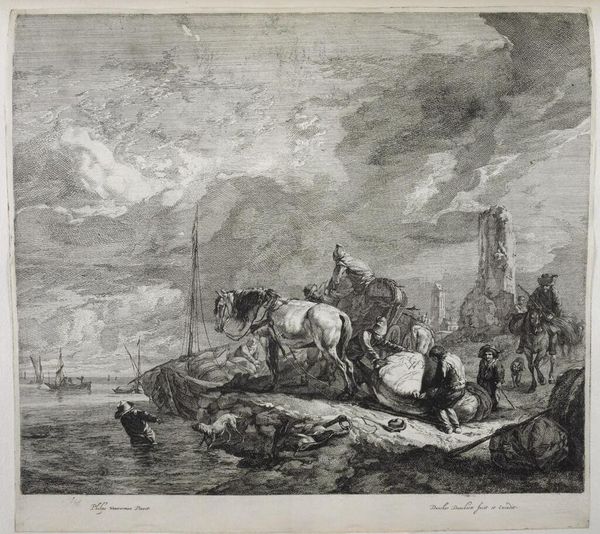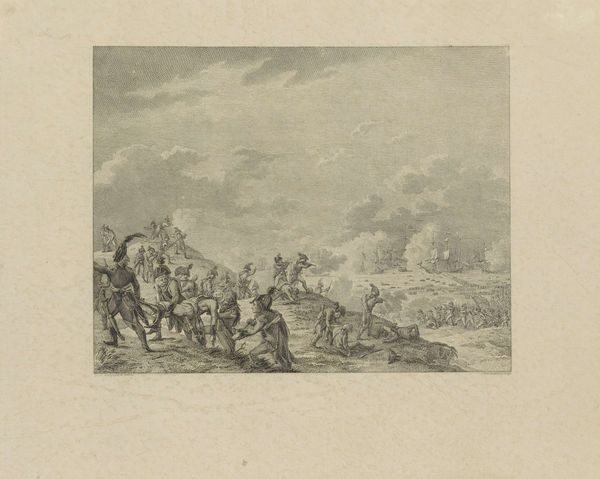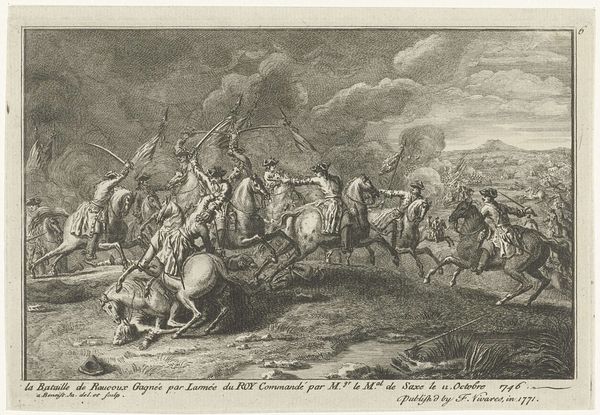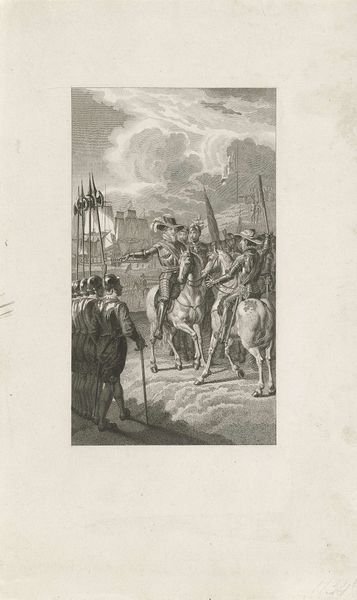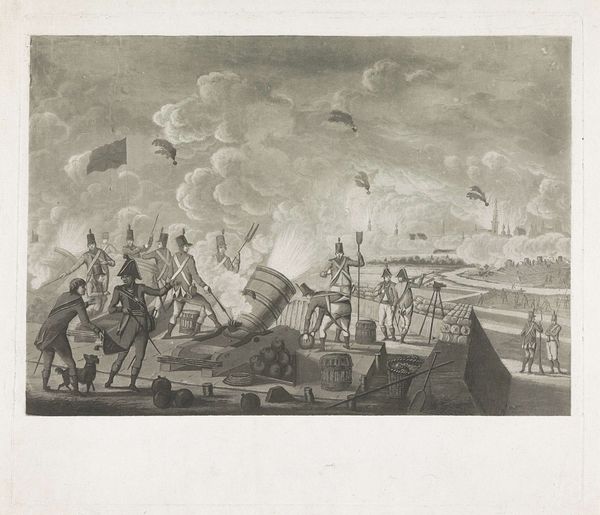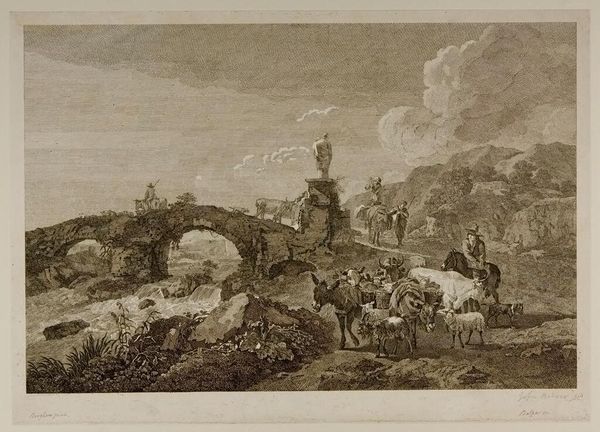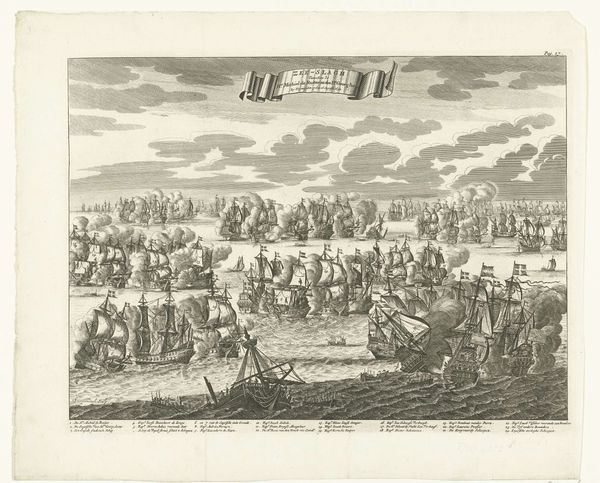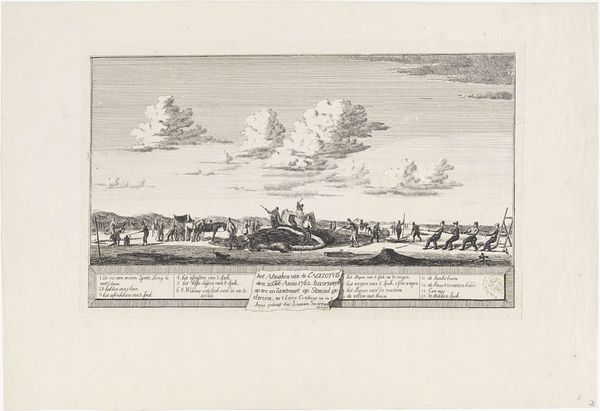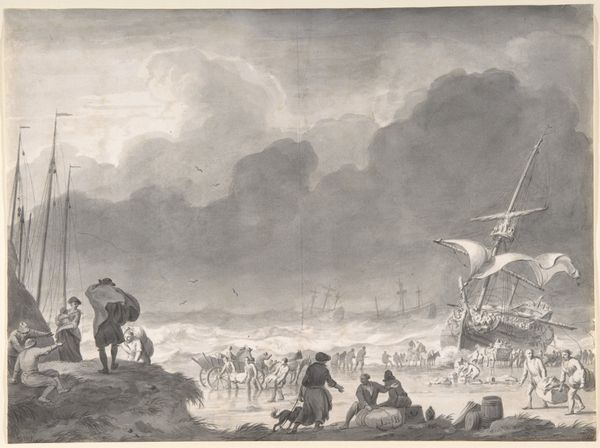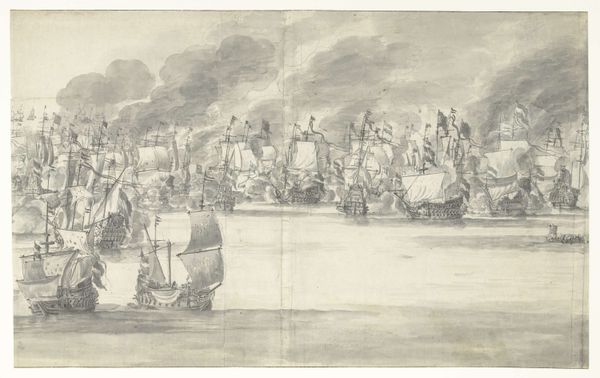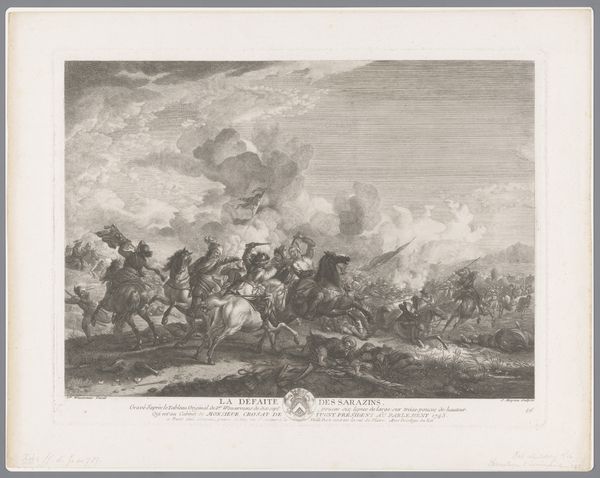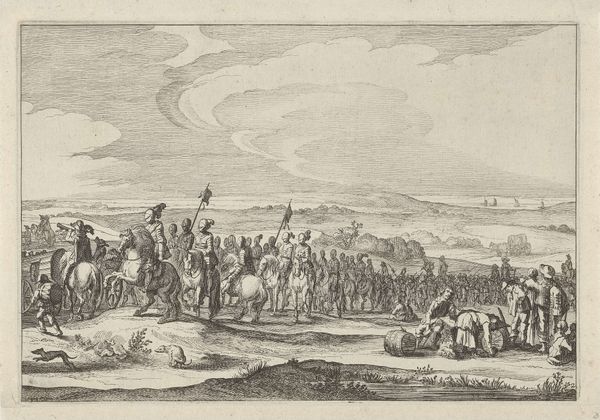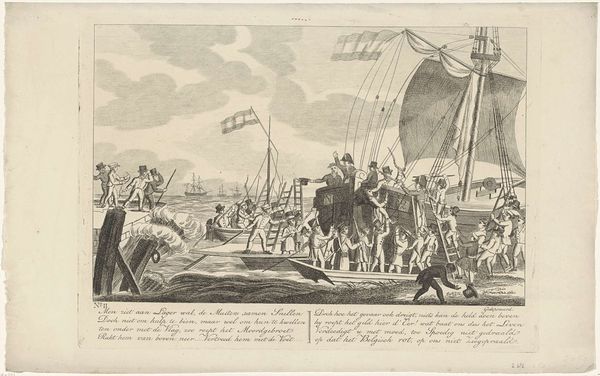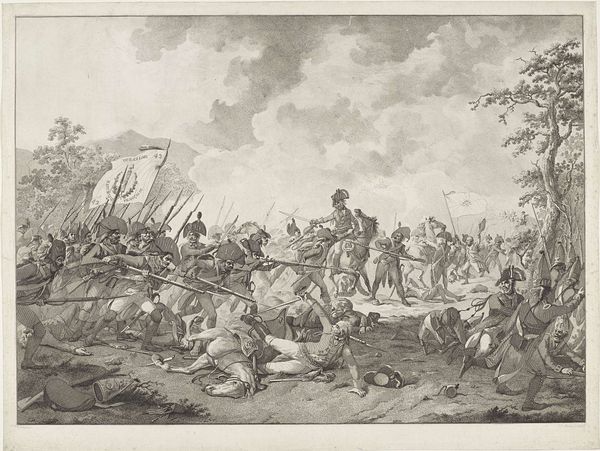
print, engraving
# print
#
landscape
#
romanticism
#
history-painting
#
engraving
Dimensions: height 291 mm, width 368 mm
Copyright: Rijks Museum: Open Domain
Curator: This engraving by A. Lutz commemorates the "Landing of the British on Walcheren" in 1809. It’s a work that blends historical documentation with romantic ideals. What’s your initial take on this scene? Editor: Gray. Smokey gray. It feels muted, despite all the implied action. Like a memory viewed through a gauze. A slightly sad, heroic tableau. Is that the North Sea out there? Gives me chills just looking at it. Curator: The artist captures the ambition and also the ambiguity inherent in such military ventures. This event, the Walcheren Campaign, aimed to open up the port of Antwerp but became a story of disease and failure more than strategic brilliance. Lutz has chosen to depict its initial, hopeful energy. Editor: Hopeful is a strong word. To me, the dark and roiling clouds take up half the image and speak more about the chaos and brutality than glory. And even those guys on the cannons—they look awfully exposed. Vulnerable. Curator: Perhaps, but that vulnerability underscores the bravery attributed to these soldiers. This was meant to be a moment of national pride, and engravings like these circulated widely, shaping public opinion about the event. Remember also the historical context, this was made during a time when Romanticism emphasized heightened emotion, the sublime. Editor: Yes, that sublime feeling! A good storm will always be a good subject. But I guess here I focus more on the ground: the men, the mess... This almost monotone scheme forces the eye to wander. It feels very grounded, even as it soars to meet those clouds. Did it serve the initial propaganda well, do you think? Curator: The initial reception was, indeed, positive, reflecting a sense of patriotic fervor and admiration for the British military, it helped cast a long shadow on how the war was perceived back home. Editor: Shadows… that’s really what it is. Thank you for pulling back those clouds and showing me the larger context! Curator: And thank you, your perceptions reminds me to look beneath the official narratives these images carry.
Comments
No comments
Be the first to comment and join the conversation on the ultimate creative platform.
